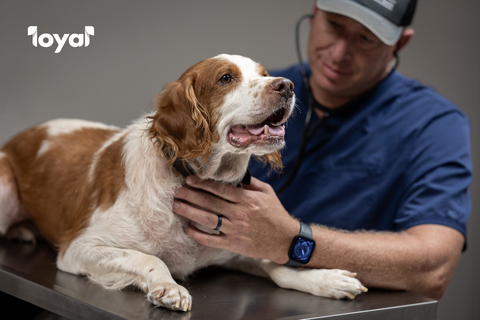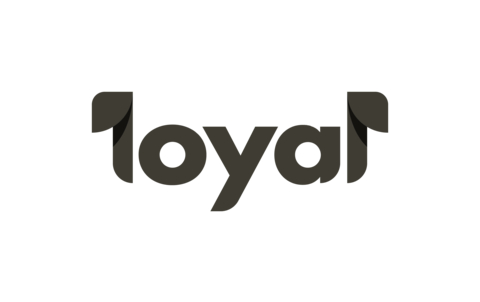FDA Agrees Loyal Data Supports Reasonable Expectation of Effectiveness for Large Dog Lifespan Extension
FDA Agrees Loyal Data Supports Reasonable Expectation of Effectiveness for Large Dog Lifespan Extension
Milestone marks critical step toward launching the first drug designed explicitly for healthy lifespan extension in any species
SAN FRANCISCO--(BUSINESS WIRE)--Loyal, a biotech company pioneering longevity drugs for dogs, announced today that the Food and Drug Administration (FDA) Center for Veterinary Medicine has approved the Reasonable Expectation of Effectiveness section of Loyal’s conditional approval application for LOY-001, a drug the company is developing to extend the lifespan of large dogs and maintain their quality of life as they age.
With this milestone, Loyal leads a shift in the medical field’s approach to treating age-associated diseases in animals. LOY-001 represents a new category of pharmaceutical, focused on targeting mechanisms of aging to prevent or delay the onset of age-associated diseases, rather than waiting for patients to get sick before treating them.
“Loyal was founded with the ambitious goal of developing the first drugs to extend healthy lifespan in dogs,” said Loyal CEO Celine Halioua. “This milestone is the result of years of careful work by the team. We’ll continue to work just as diligently to bring this and our other longevity programs through to FDA approval.”
The Conditional Approval Pathway
The FDA’s Expanded Conditional Approval is an accelerated pathway for animal drugs that aims to increase the availability of innovative therapies. It’s designed for drugs that demonstrate a reasonable expectation of effectiveness in addressing an unmet medical need, but require complex and difficult studies to complete collection of definitive effectiveness data.
Today’s milestone is a crucial part of Loyal’s application for conditional approval. It means the FDA agrees LOY-001 has a reasonable expectation of effectiveness and, once the FDA approves Loyal’s manufacturing and safety data packages, Loyal can market the drug for lifespan extension in the target canine population. Conditional approval lasts for up to five years, during which time Loyal will collect the remaining effectiveness data and apply for full approval.
A New Approach
The pharmaceutical industry has historically focused on developing drugs that treat specific diseases, including those associated with aging. Treatment typically begins only when those diseases are established and patients are symptomatic.
Loyal’s approach represents a different paradigm: use our understanding of the underlying mechanisms of aging to reduce the risk of these diseases in the first place. Today’s announcement shows the FDA believes Loyal’s approach is valid.
The Center for Veterinary Medicine at the FDA has reviewed Loyal’s data, results, and scientific arguments and determined they provide reasonable expectation of the drug’s effectiveness to extend canine lifespan and healthspan. Pending successful completion of the Manufacturing and Safety sections, Loyal will receive conditional approval for LOY-001, allowing them to market the drug for large-dog lifespan extension.
Linda Rhodes, VMD, PhD, a well-known animal health industry expert with extensive experience developing animal drugs and working with the Center for Veterinary Medicine at the FDA, said: “Loyal’s achievement is impressive. Developing a treatment that will increase longevity by reducing age-associated disease is a new indication. No drug has ever been approved with such a claim, and pioneering a new indication through regulatory agencies requires an enormous amount of rigor and persistence. Being the first to bring a treatment for such a challenging indication will be truly historic.”
LOY-001
The drug, codenamed LOY-001, is intended to extend lifespan and maintain quality of life in large- and giant-breed dogs. These breeds may have as little as half the expected lifespan of small breeds.
Selectively breeding dogs for size is understood to cause elevated levels of the growth-promoting hormone IGF-1, and this is believed to reduce their lifespan. Large dogs have up to 28x the levels of IGF-1 as small dogs.
LOY-001 works by reducing IGF-1 in adult dogs to increase lifespan.
Designed as a veterinarian-administered long-acting product given to dogs every three to six months, LOY-001 is anticipated to be available in 2026, subject to FDA approval of Loyal’s manufacturing and safety data.
The basis for the FDA’s decision today was the data submitted by Loyal, including studies showing LOY-001’s ability to reduce levels of key biomarker IGF-1 and the beneficial impact on functional outcomes in dogs. This was further supported by a large observational study of the functional and biomarker impacts of canine aging. The study involved 452 companion dogs of 84 different breeds, aged two to 18. It validated the clinical relevance of the functional outcomes seen in Loyal’s earlier studies.
The Short Life of Big Dogs
There’s a well-established inverse relationship between a dog’s size and their expected lifespan — bigger dogs live shorter lives than smaller dogs, by nearly half. Great Danes and Newfoundlands may live only seven to eight years, compared with the average lifespan of up to 20 years for Chihuahuas and Miniature Poodles.
“The extreme phenotypic variety found in dogs is not ‘natural’ — it’s the result of intensive breeding by humans to create dogs that excelled at tasks such as herding, protection, and companionship,” said Brennen McKenzie, Loyal’s Director of Veterinary Medicine and previously President of the Evidence Based Veterinary Medicine Association and a practicing veterinarian. “At Loyal, we see the short lifespan of big dogs not as inevitable, but as a genetically-associated disease caused by historical artificial selection, and therefore amenable to targeting and treatment with a drug.”
Historical selective breeding is one of the causes of genetically-associated diseases such as cancers in Golden Retrievers, hip dysplasia in German Shepherds, and canine brachycephalic syndrome in Bulldogs. In large and giant breed dogs, breeding for size causes these dogs to have elevated levels of IGF-1, a hormone that drives cell growth, and is believed to reduce their lifespan.
“Ever since we invested in Loyal in 2021, the team has made tremendous progress with the FDA, legitimizing an entirely new category of pharmaceuticals through their efforts,” said Vinod Khosla, Founder, Khosla Ventures. “Today’s announcement marks a first for any longevity drug, and is a big step towards accelerating the path for canines, and ultimately humans.”
About Loyal
Loyal is a biotech startup developing the first drugs intended to help dogs live longer, healthier lives. By targeting the underlying mechanisms of aging, Loyal hopes to extend the lifespan of dogs and maintain their quality of life as they age.
For more information, please visit loyalfordogs.com.
Contacts
Tim Smith
press@loyalfordogs.com
415-350-3019

